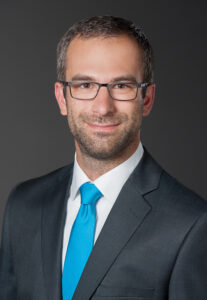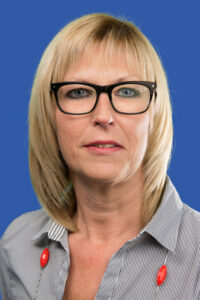
On 1 July 1991, the Studentenwerk Freiberg was re-established as one of four Saxon student unions. Despite its legal independence, it has close organisational ties with the TU Bergakademie and Mittweida University of Applied Sciences.
It looks after students in the areas of educational support, housing, catering, social and cultural affairs. The Studentenwerk endeavours to help shape the "living space" of the university and is divided into the management and several departments.
Management

Address:
Agricolastrasse 14/16 | 09599 Freiberg
Departments
Internal service

Lydia Klapproth
Head of Internal Services Department, Deputy Managing Director
Lydia.Klapproth@swf.tu-freiberg.de
Telephone: 03731 383429
Address:
Agricolastrasse 14/16 | 09599 Freiberg
Promotion of education

Isolde Geißler
Head of Department Office for Educational Support
Isolde.Geissler@swf.tu-freiberg.de
Telephone: 03731 383282
University catering

Holger Poppe
Head of the University Catering Department
Holger.Poppe@swf.tu-freiberg.de
Telephone: 03731 383340
Address:
Agricolastrasse 10a | 09599 Freiberg
OR
Weststraße 11 | 09648 Mittweida
Culture and communication

Christian Schröder
Head of Culture and Communication
Address:
Agricolastrasse 14/16 | 09599 Freiberg
Social services

Antje Liebernickel
Head of Social Services Department
Address:
Petersstraße 5 | 09599 Freiberg
Living | Building | Technology

Birgit Kohlbach
Head of Department Housing | Construction | Technology
Birgit.Kohlbach@swf.tu-freiberg.de
Telephone: 03731 383131 (Freiberg)
Telephone: 03731 383442 (Mittweida)
Mobile: 0174 3472226
Address:
Agricolastrasse 14/16 | 09599 Freiberg
OR
House 3 (ground floor) | Am Schwanenteich 8 | 09648 Mittweida
Deutsches Studierendenwerk e. V.
For over 80 years, the Studentenwerke / Studierendenwerke and their umbrella organisation, the Deutsches Studierendenwerk e. V. (DSW), have been successfully committed to the social, economic, cultural and health promotion of students in Germany. As modern service organisations, 57 Studenten- / Studierendenwerke today offer their services to around 2.2 million students. With their services, they contribute to the efficiency of study programmes and the profile of universities - so that studying is a success!
The DSW coordinates and supports the work of the Studentenwerke and Studierendenwerke, represents their interests vis-à-vis other university associations and organisations and informs the public. It represents the socio-political interests of students.
The history of the Freiberg Student Union
Due to the financial hardship after the First World War, students at the individual university locations in Germany formed aid organisations to make it easier for financially disadvantaged fellow students to study.
When, in July 1921, the Erlangen Student Congress passed a resolution to merge all of these economic institutions at each university into a legal economic entity, Freiberg initially refrained from doing so. They contented themselves with the establishment of an economic office created by the student body alone. It was not until July 1925 that the "Freiberger Studentenhilfe e. V." was founded as the fiftieth of the existing economic organisations at German universities. This laid the foundation stone for today's Studentenwerk Freiberg.
Gradually, the areas of student support that still form the pillars of the Studentenwerk today developed. So-called "Freitische" were offered, the forerunners of subsidised canteen meals. Loans were also granted (today's BAföG) and accommodation was organised.
In 1933, the legally independent local student unions were dissolved and transferred as dependent sub-organisations to the Reichsstudentenwerk, founded in 1934 and based in Berlin. At the end of the Second World War, the property of the Reichsstudentenwerk was confiscated in the Soviet occupation zone. Despite extensive efforts by the university management, the work of the student union could not be resumed for the time being.
In the GDR, the higher education institutions were not only responsible for teaching, but for all areas of student support.